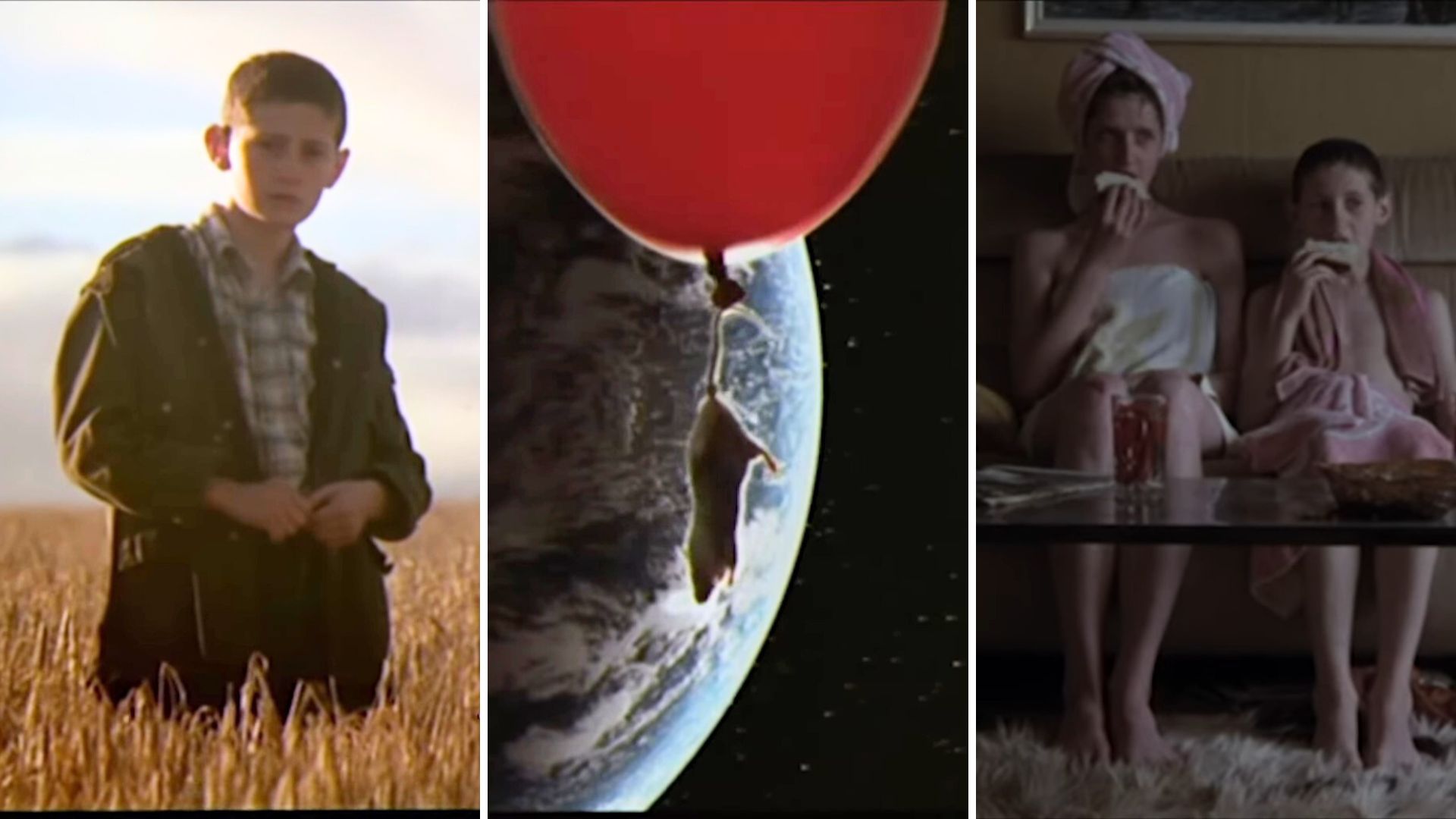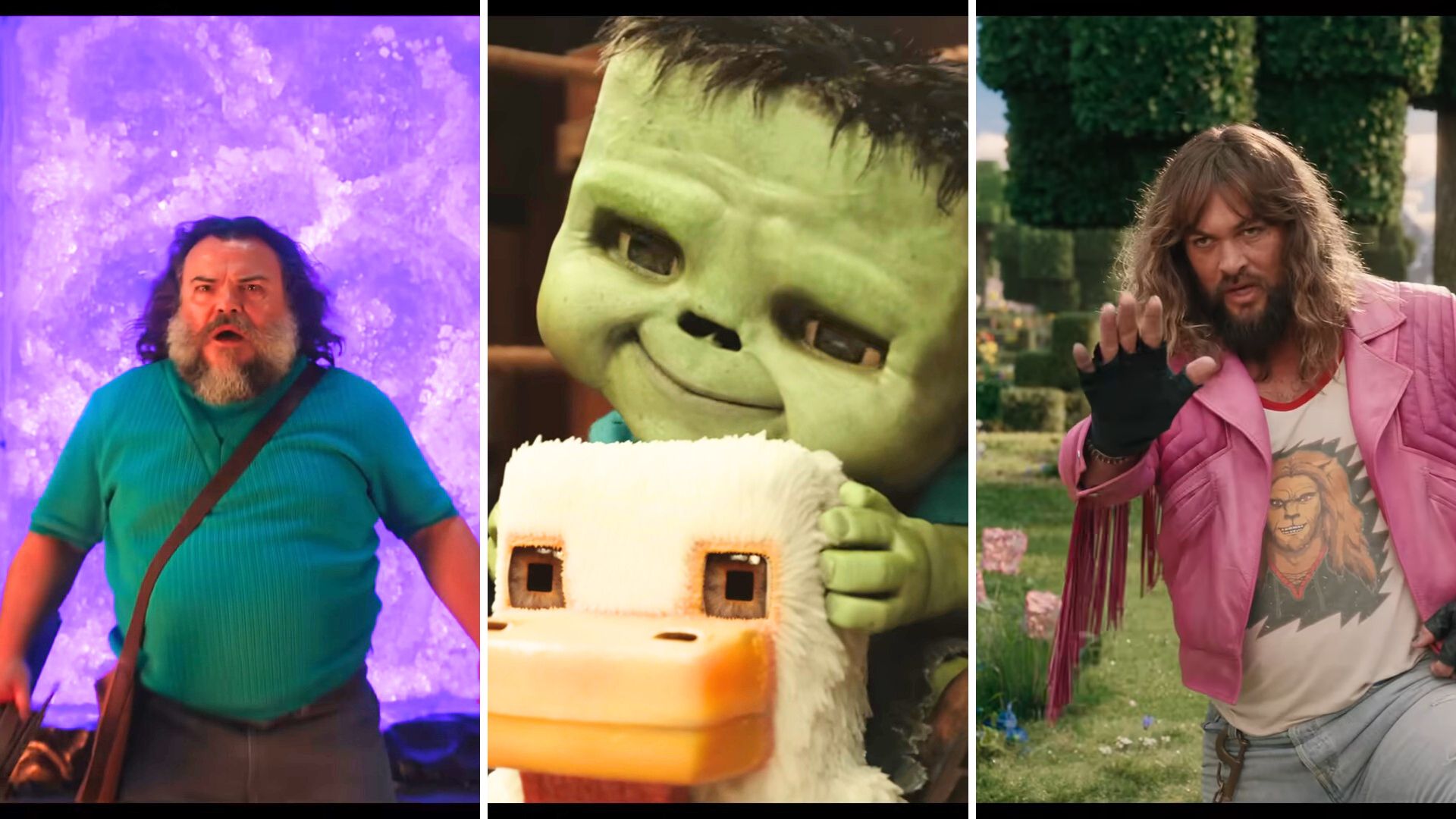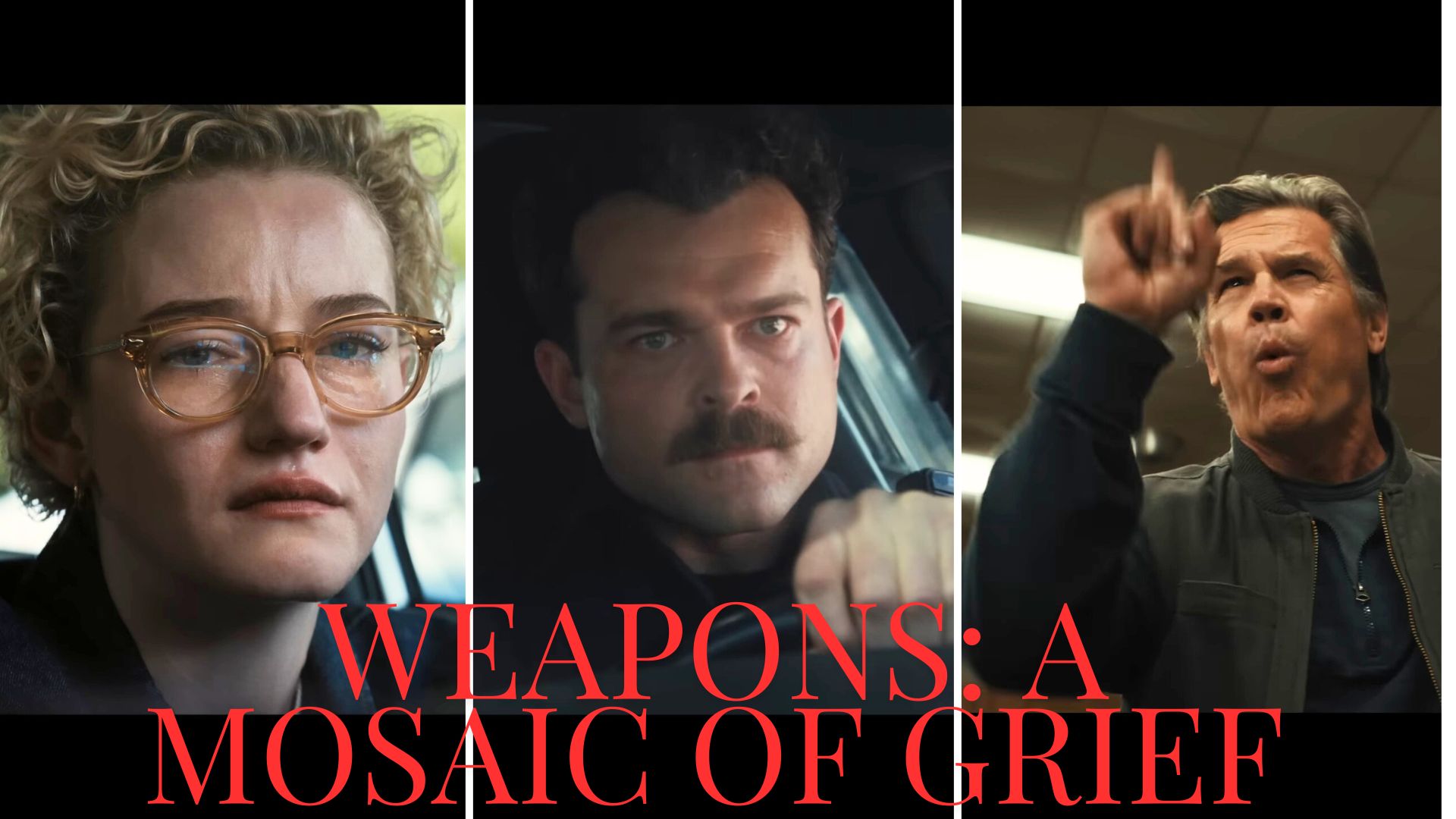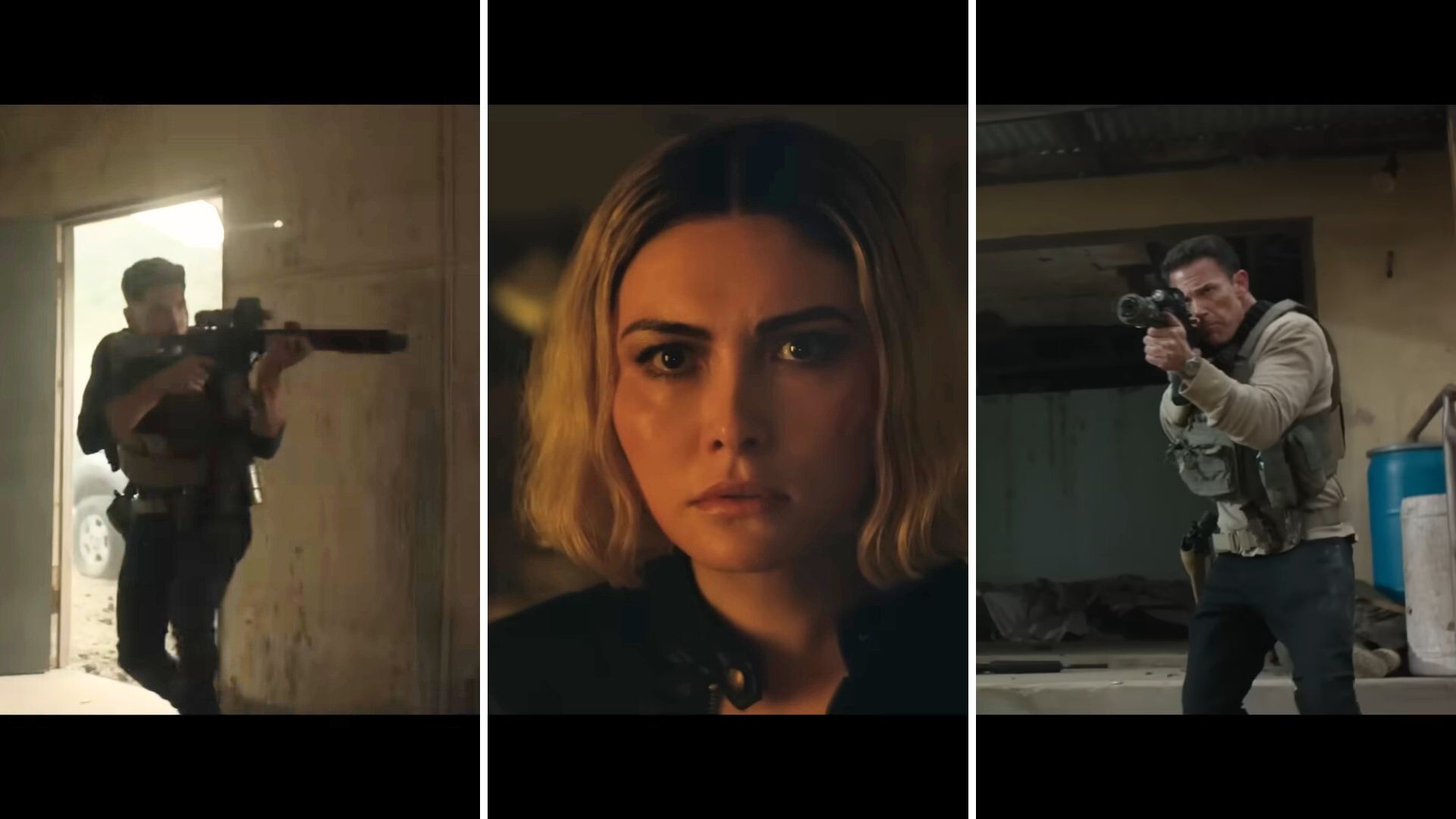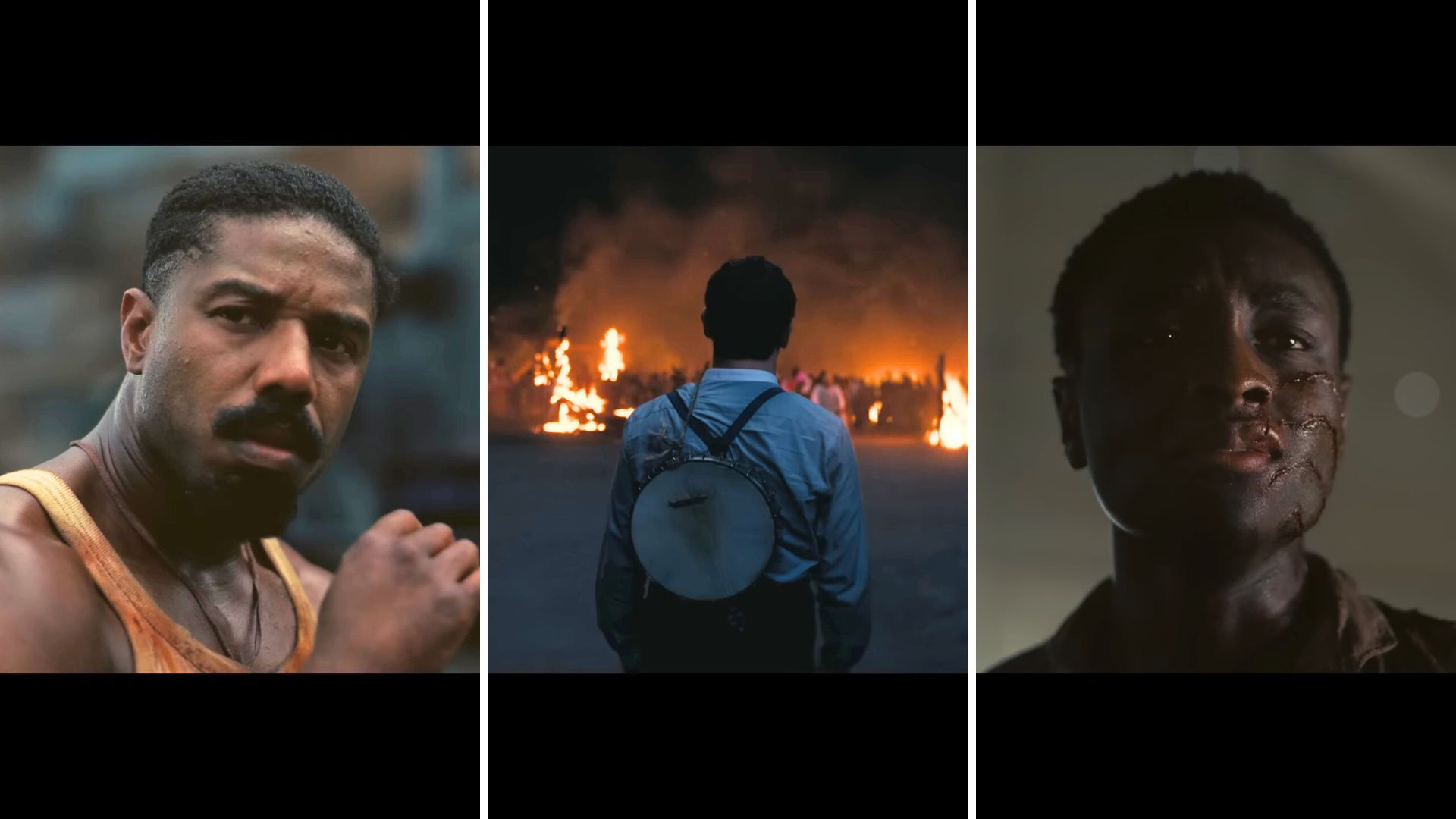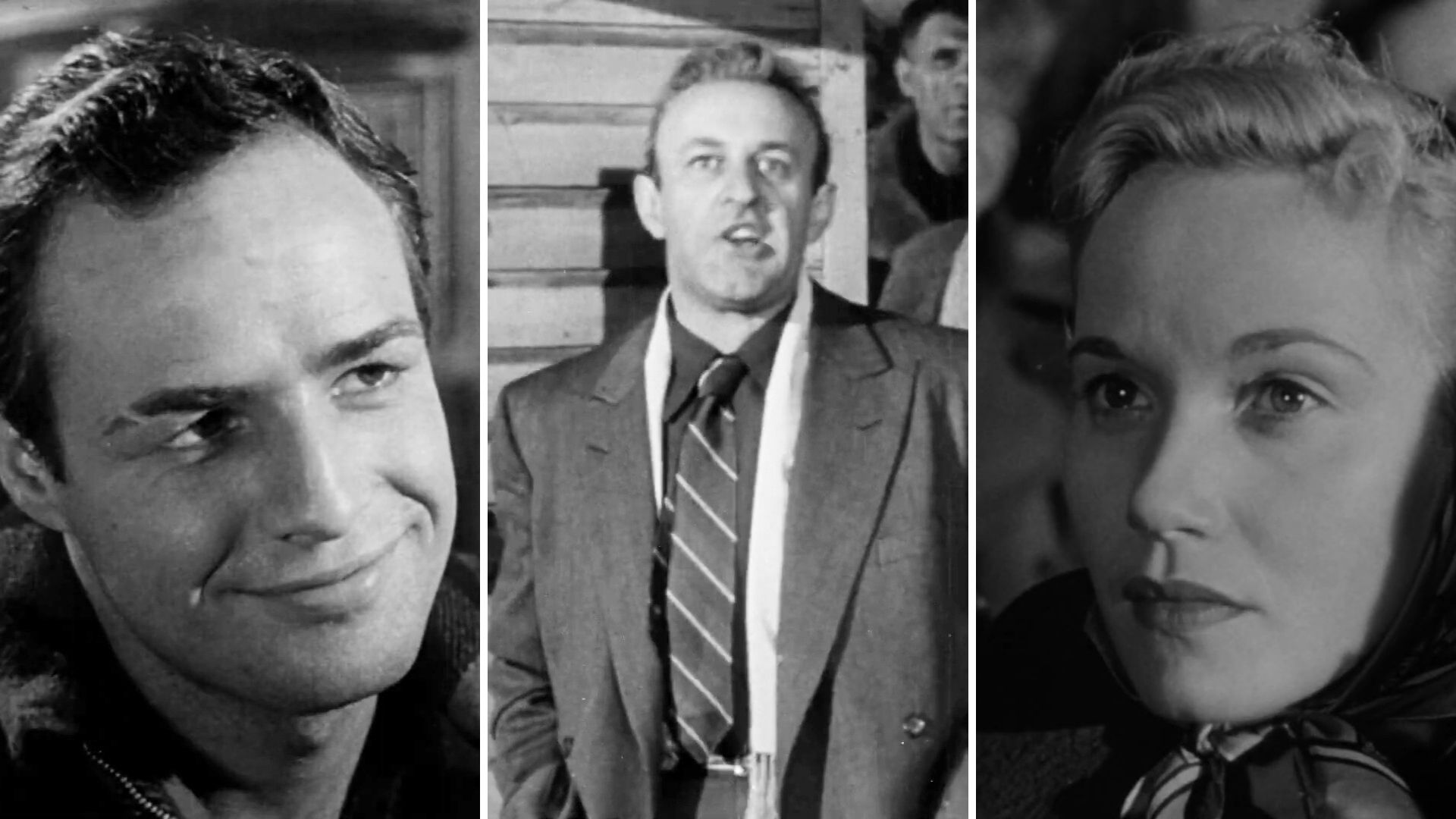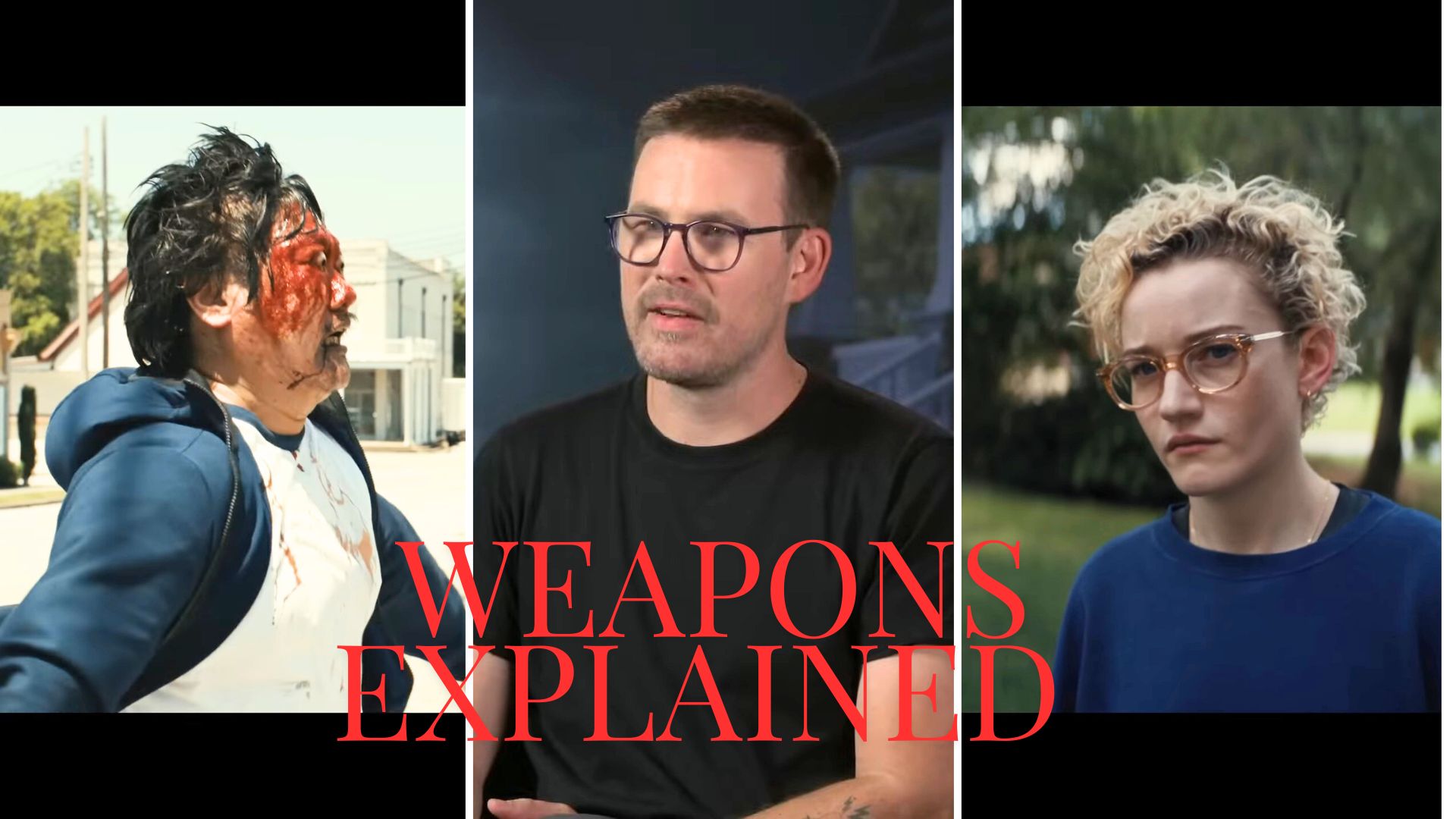
There are a few movies I could talk about this week. I could talk about Spike Lee’s latest collab with Denzel Washington, a remake of Akira Kurosawa’s 1963 film High and Low, but that’s in such a limited release Im sure very few people have had the chance to see it. I could talk about Ice Cube’s War of the Worlds, a film that is getting a lot of attention for all the wrong reasons. That movie is definitely venturing into the so bad its entertaining category, but so much of that movie is just a commercial for amazon that I don’t really want to talk about it. I could also do Americana, the debut from Tony Tost that, after two years finally has distribution and is hitting theaters, but there are too many Sydney Sweeny in blue jeans that could be made so I’ll skip that one. How about, I just talk about Weapons again.

I already gave this film its flowers last week. I found this to be an incredibly intelligent film about grief while also firmly cementing itself in the horror genre. It has a little bit for everyone, and it’s a film I think is definitely worth your time, but today I want to talk a bit more about the director Zack Cregger and the promotion run he’s been doing for this film. Zach has been making a ton of appearances, and he isn’t holding anything back when it comes to the themes and ideas he was trying to portray with this film. It’s something we see a lot of new directors do, they want to talk about their films, they want to go deep into their thought process, but eventually, these directors, for the most par,t stop doing that.
Take Paul Thomas Anderson for example. When he made Boogie Nights, he was super open about his influences, character choices, and why he wanted to make a film about this time period. Fast forward a few years to some of his more recent flicks like The Master, a film I absolutely adore, and PTA is deafeningly quiet about the true ideas and themes of this film. Many people thought the master was just going to be a Scientology movie. A flick kind of lampooning that pseudo religion that has taken over some of the biggest names in Hollywood, but in actuality, that film is about so much more. It’s really a movie about PTSD, freedom and control, duality, and the search for belonging in a world that looks totally foreign to the one you grew up in. Or it isn’t about any of those things, and my analysis is totally wrong because PTA almost comically refuses to talk about what was going on in his head when he made the master.
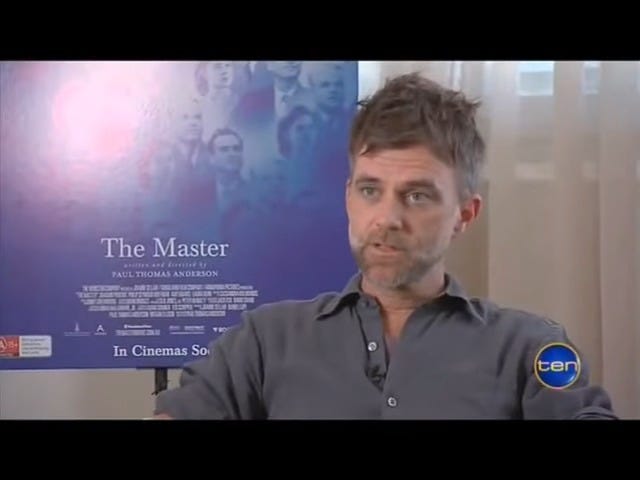
But this is something that every great director starts to do as they advance in their career. They stop talking about what their movies are about and instead just let the audience decide. It can be frustrating at times, especially if you’re someone like me who loves to get inside the directors head and really want to understand what they were thinking and why they made certain choices, but it can also be exhilarating when you watch something a third or fourth time and find some little nugget that you didn’t see before. And when you do that, there is no one to tell you that your analysis is wrong. You get to glean from the movie what you want to.
I’ve seen Weapons twice now, and one thing that I totally missed is the theme of alcoholism that’s present in Alex’s story. I will be going full spoilers into weapons now, so if you haven’t seen the film, you can go read my spoiler-free thoughts on it from last week, or just come back to this after you’ve seen the film.
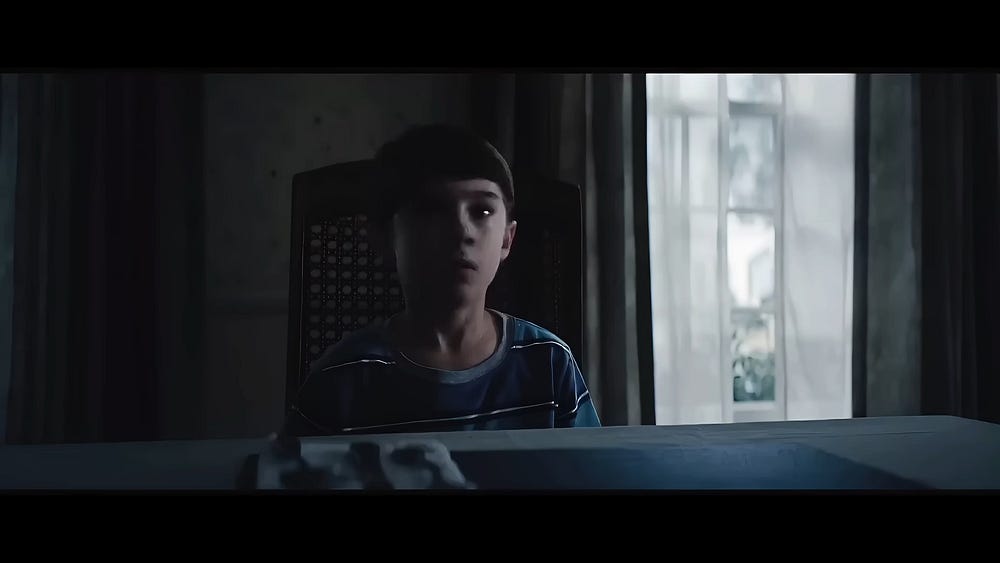
In Alex’s story, we learn about Aunt Gladys, the evil witch who has put the children of Justine Gandys’ class under her control and cast a spell on Alex’s parents. His parents are left immobile, unable to feed or clean themselves, and it’s up to Alex to care for his parents while they are under the thumb of this all-powerful and all-consuming spell. It’s a smart metaphor for alcoholism, but one that I didn’t read into at all until Zach Cregger stated in an interview that this portion was borderline autobiographical, mimicking his struggles of growing up with alcoholic parents. I would like to think that on a third or fourth viewing, I would have picked up on this theme, but who knows. I’m not the smartest guy, and I spent most of the movie trying to analyze the grief that’s ever present in the films first two acts. The third act feels like such a strict genre movie that when we start getting into all the supernatural, I kind of just unplug my brain and sit along for the ride. Enjoying all the scares and set pieces Cregger throws at us.
It’s really cool Zach is being so open with us, the audience, about his latest film, but it’s something I don’t think we’ll see from him for long. Maybe another movie or two, but I think eventually he will stop being so candid about his themes and ideas and instead, just trust the audience to pick up what he’s throwing down.

I love watching movies, and I find myself revisiting the same movies over and over looking for new details, things I missed on my previous viewings. When you find something new in a film, a certain choice or easy to miss dialogue line, and it recontextualizes the whole movie, it can feel exhillerating. Like you are there with the writer or director, understanding the vision he or she laid out without being hand held through the process.
I’ll give one quick example of a detail I picked up recently on a movie I’ve seen dozens of times. Pulp Fiction is one of my favorite movies, as it is for so many. I saw this movie when I was way too young, and it really changed how I watched movies and thought about film. I’ve watched this movie at least once a year, every year since I was about ten. But I picked up on something interesting the last time I watched it. A quick line of dialogue from Vincent Vega that made me rethink his whole character arc.
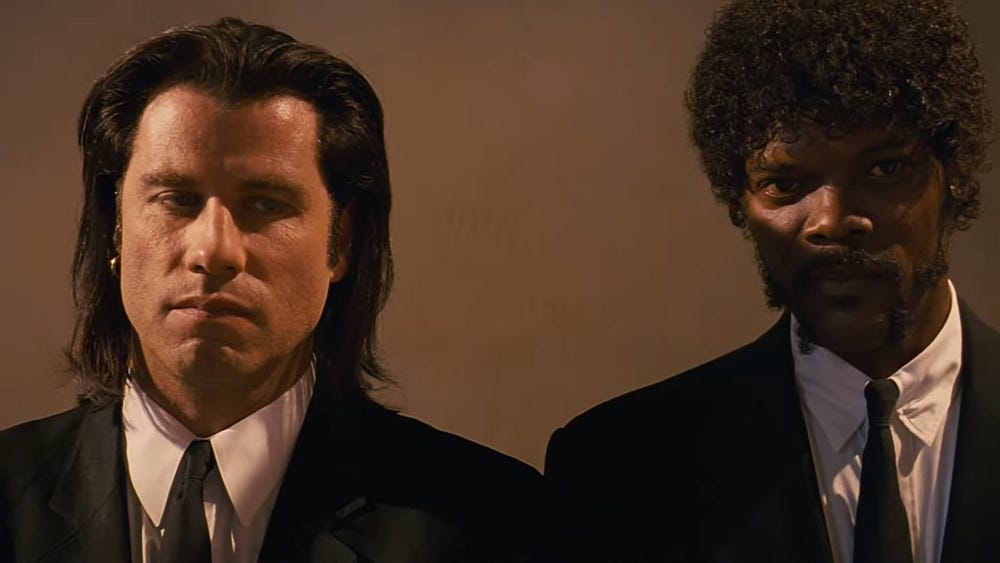
Throughout the film, Vincent Vega is cool. He’s a cool hitman who makes witty jokes and walks around with the bravado of a long-time criminal. But Vega is also objectively pretty bad at his job. He leaves his drugs in the wrong bag, just waiting for it to be mistaken for a softer drug, he shoots Marvin in the face, and he leaves his gun on the kitchen counter while he uses the bathroom on a pretty dangerous mission. Throughout the film, Vincent Vega makes rookie mistakes despite not being a rookie.
We know from the beginning of the film that Vincent Vega has taken some time off, been in Amsterdam for a while, but it isn’t until his dinner with Mia Wallace that we learn exactly how long he was over there. Three years. Three years is a long time to take away from a job. It’s a hell of a sabbatical, and with this knowledge, Vincent’s rookie mistakes become clearer.
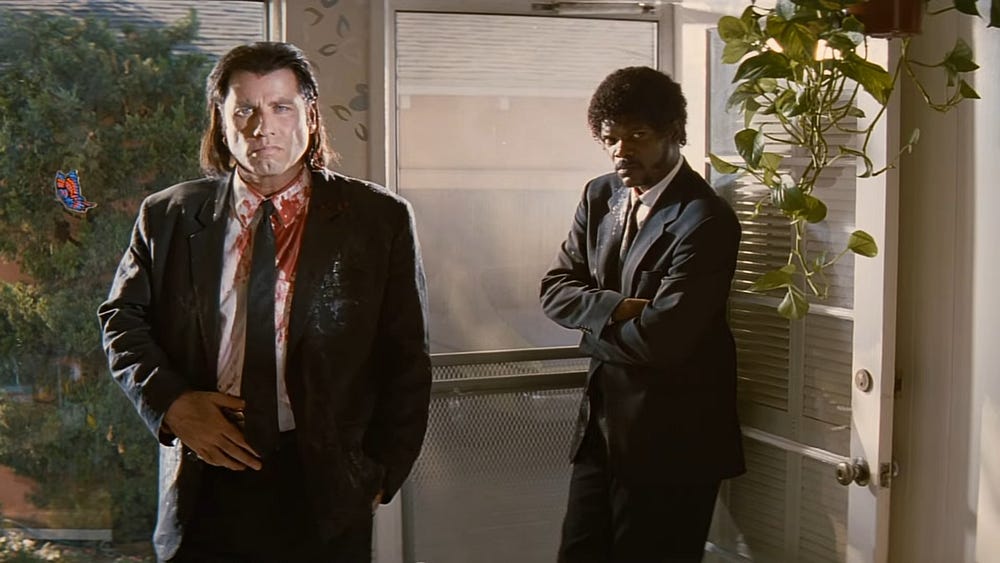
Quentin Tarantino was able to use this line and a small bit of backstory to make a rookie and veteran story without having to use an actual rookie. The rookie and vet story, it’s been done a million times, and the big issue with that type of story is the rookie can in no way be cool. He has to be a bumbling idiot, constantly demeaned by the vet, and he has to get in over his head because he isn’t cool and doesn’t know the ropes. Vincent, though is cool, he’s super cool, and when he ignores divine intervention or talks back to the wolf, it doesn’t come off as some rookie who doesn’t know his place; it comes off as a veteran who’s been around the block a few times. He’s earned his title, knows his way around, but he’s extremely rusty at his job, so these mistakes, both small and large, now make a lot more sense when we learn just how long he spent in Europe.
Maybe this isn’t a big revelation. I’m sure many people picked up on it way earlier than I did, but it was just this one thing that I noticed on my most recent rewatch that made Vincent’s entire arc click for me. By using this framing device, Tarantino was able to tell a rookie story where the rookie is actually cool. Where the newbie can still demand respect and be seen as a competent criminal despite his constant mistakes.

Cregger is enjoying his success right now and basking in the glow of audiences and critics constantly asking what he was thinking with each character choice. He, in my opinion, deserves this praise and I’m glad he’s able to talk so freely and explain to audiences what he was thinking when making this film. It’s unlocked a lot of the themes and big ideas of this movie, some I may not have gotten without him telling me.
But I also hope that as he makes more films, he begins to cool on over-explaining everything to the audience. It’s fun to know what a creator was thinking, but it’s also a lot of fun to take something personal away from a film. Something the director never intended. And then, instead of an explanation about what this is supposed to mean, we get to put our own themes and ideas on an artist’s piece of work. You can watch some of PTA’s later films, Sophia Coppola’s movies, or the works of David Lynch and take away whatever you want from those movies, because those artists aren’t going to tell what their movies are about. They just want you to enjoy them and put your own themes on it. Regardless though, I loved weapons, and I’m glad Zack is able to talk about it with people who cared for the film.



